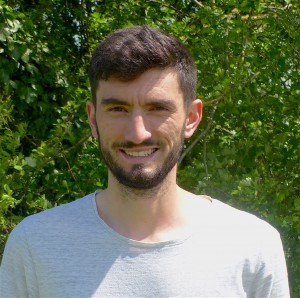CIVIC SERVICE VOLUNTEER AT GEPMA
With a Master’s degree in ‘Ecophysiology and Ethology’ from Strasbourg University – like other participants in the LIFE Alister project (Julie Roux, Mathilde Tissier and Florian Kletty), Théo Constant has always been very interested in animal biology, both in the context of laboratory studies and in the field. He joined GEPMA (Alsace Mammal Study and Protection Group) for a period of civic service.
What led you to join GEPMA?
During the internship at the end of my studies, I was lucky enough to work for ‘Les Sentinelles du Climat’ programme and study the impact of global warming on an endangered species (the Pyrenean frog) with the aim of protecting it. This project is supported by an association for nature protection (Cistude Nature) that works jointly with researchers. I found this partnership very interesting due to the combination of complementary skills and approaches employed for the success of the programme that was directly linked to conservation of the species.
Following this experience, I wanted particularly to gain a better understanding of the role and aims of associations before continuing my career in research.. This is when I applied to GEPMA for a period of civic service, which has been working on the LIFE ALISTER project for several years and which I had heard about during my studies.
What is your role in GEPMA, and more particularly in the LIFE Alister programme?
Within this project, GEPMA works to raise the awareness of children and the general public in protecting the European Hamster.With the help of Julie Roux, we are present on stands at various events (the European Trade Fair, for example) to answer questions and explain the actions that are being implemented to save this species. We also go and speak to children in schools and at extra-curricular events. I enjoy initiatives to popularise this issue, especially when it involves young people where I have had to adapt my explanations to make them more accessible.
What interests you in LIFE Alister?
The LIFE ALISTER project brings together players from very different origins with the aim of rallying them to act jointly and find long-term solutions for the survival of the European Hamster, while also considering human activity. The duration of the debates I have witnessed truly demonstrates the difficulties of such a task. It inevitably leads us to question our relationship to biodiversity and our place in the ecosystem.
This project is centred around the European Hamster, a cute and charismatic species that the general public is easily attracted to. But the project has a much wider scope because the actions implemented to protect the European Hamster also benefit species in the Alsace Plain that are less emblematic, but every bit as important for a balanced ecosystem.
Raising awareness is painstaking work, but in my view, it is essential for the long-term conservation of the European Hamster – and biodiversity in general.


